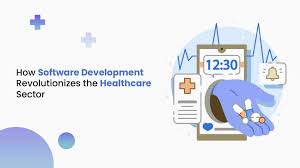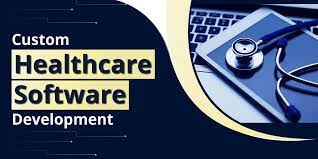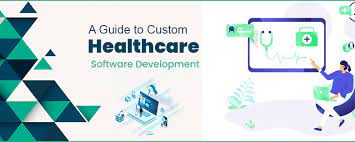Harnessing the Power of Artificial Intelligence in Finance: A Game-Changer for the Industry
Artificial Intelligence in Finance: Transforming the Industry
Artificial intelligence (AI) is revolutionizing the finance industry by enhancing efficiency, accuracy, and customer experience. From automating routine tasks to providing advanced data analytics, AI is paving the way for a more innovative financial landscape.
The Role of AI in Financial Services
AI technologies are being integrated across various sectors within finance, including banking, investment management, and insurance. Here are some key areas where AI is making a significant impact:
- Fraud Detection: AI algorithms can analyze vast amounts of transaction data to identify unusual patterns that may indicate fraudulent activity. This allows financial institutions to respond swiftly and minimize potential losses.
- Risk Management: By leveraging machine learning models, financial firms can better assess and predict risks. These models process historical data to provide insights that help in making informed decisions.
- Customer Service: Chatbots and virtual assistants powered by AI are improving customer service by providing quick responses to inquiries and assisting with transactions around the clock.
AI-Powered Investment Strategies
Investment management has been significantly enhanced by AI through algorithmic trading and robo-advisors. Algorithmic trading uses AI to execute trades at optimal times based on market data analysis. Meanwhile, robo-advisors offer personalized investment advice using algorithms that consider an individual’s financial goals and risk tolerance.
The Future of AI in Finance
The potential for AI in finance is vast as technology continues to advance. Here are some trends to watch for in the coming years:
- Enhanced Personalization: Financial services will become increasingly tailored to individual needs through deeper insights derived from big data analytics.
- Sustainability Analysis: AI will play a crucial role in assessing the environmental impact of investments, helping firms align with sustainable practices.
- Regulatory Compliance: Automation tools will aid compliance teams by ensuring adherence to evolving regulations through real-time monitoring and reporting.
Challenges and Considerations
Despite its benefits, implementing AI in finance comes with challenges such as data privacy concerns, algorithmic bias, and the need for significant investment in technology infrastructure. Companies must address these issues while ensuring transparency and accountability in their AI systems.
Conclusion
The integration of artificial intelligence into finance is transforming how financial services operate globally. As technology continues to evolve, embracing AI will be essential for institutions seeking competitive advantage and improved customer experiences.
5 Ways to Harness Artificial Intelligence in Finance for Enhanced Security, Efficiency, and Decision-Making
- Utilize AI algorithms for fraud detection to enhance security measures.
- Implement machine learning models for risk assessment and portfolio management.
- Use natural language processing for analyzing news sentiment to predict market trends.
- Employ chatbots for customer service to provide quick responses and assistance.
- Explore AI-driven predictive analytics to make data-driven investment decisions.
Utilize AI algorithms for fraud detection to enhance security measures.
Utilizing AI algorithms for fraud detection is a crucial step in enhancing security measures within the finance industry. These advanced algorithms can analyze vast amounts of transaction data in real time, identifying patterns and anomalies that may indicate fraudulent activity. By continuously learning from new data, AI systems become increasingly adept at distinguishing between legitimate and suspicious transactions. This proactive approach not only helps financial institutions quickly detect and prevent potential fraud but also minimizes financial losses and protects customer trust. Implementing AI-driven fraud detection systems allows companies to stay one step ahead of cybercriminals, ensuring a more secure financial environment for both businesses and consumers.
Implement machine learning models for risk assessment and portfolio management.
By implementing machine learning models for risk assessment and portfolio management in the finance sector, institutions can leverage advanced algorithms to analyze vast amounts of data and make informed decisions. These models can provide real-time insights into potential risks and opportunities, allowing for more accurate and efficient portfolio management strategies. By harnessing the power of machine learning, financial firms can enhance their risk mitigation efforts and optimize their investment portfolios to achieve better outcomes for their clients.
Use natural language processing for analyzing news sentiment to predict market trends.
Utilizing natural language processing for analyzing news sentiment to predict market trends is a strategic tip in leveraging artificial intelligence within the finance industry. By employing advanced algorithms to interpret and extract insights from textual data, financial institutions can gain valuable information on public sentiment towards various assets or market conditions. This approach enables more informed decision-making processes, allowing for proactive responses to potential market shifts based on the sentiment analysis of news articles and reports.
Employ chatbots for customer service to provide quick responses and assistance.
Employing chatbots for customer service in the finance industry can significantly enhance the overall customer experience by providing quick responses and assistance round the clock. These AI-powered chatbots are capable of handling a wide range of inquiries efficiently, ensuring that customers receive timely and accurate support whenever they need it. By leveraging chatbots, financial institutions can streamline their customer service operations, improve satisfaction levels, and ultimately build stronger relationships with their clients.
Explore AI-driven predictive analytics to make data-driven investment decisions.
In the rapidly evolving world of finance, utilizing AI-driven predictive analytics is becoming essential for making informed, data-driven investment decisions. By harnessing the power of machine learning algorithms and vast datasets, financial professionals can identify patterns and trends that may not be immediately visible through traditional analysis methods. These advanced analytics tools provide deeper insights into market movements, enabling investors to forecast potential outcomes with greater accuracy. As a result, firms can optimize their investment strategies by anticipating shifts in market dynamics and responding proactively to emerging opportunities or risks. Embracing AI-driven predictive analytics not only enhances decision-making processes but also offers a competitive edge in an increasingly data-centric financial landscape.








